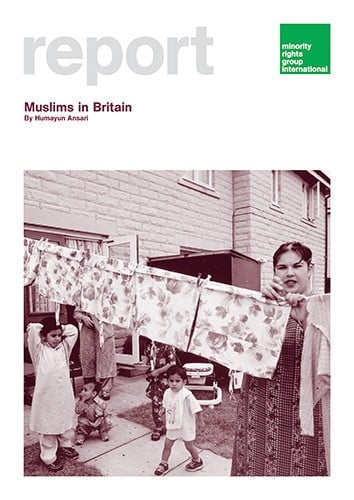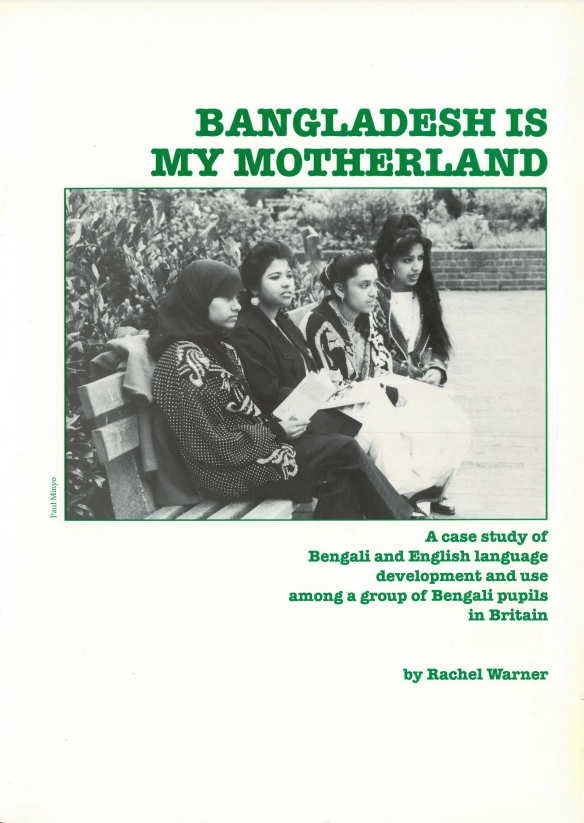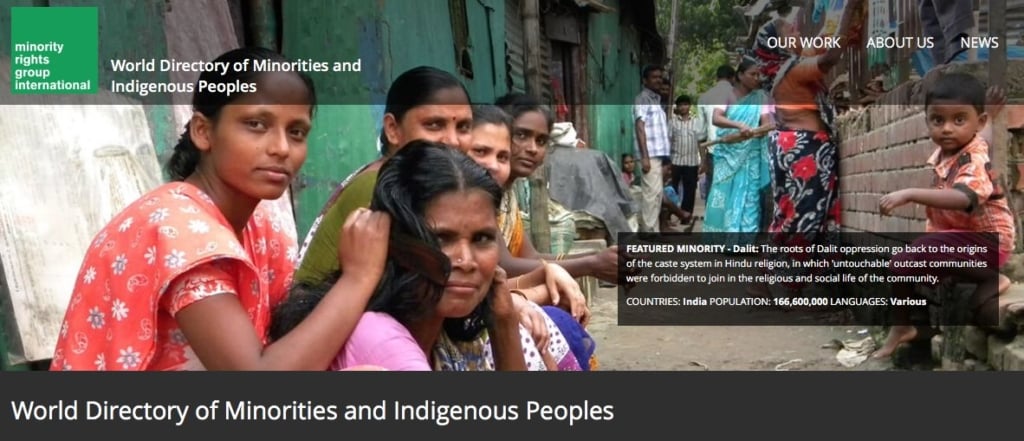United Kingdom
-
- Black British in the United Kingdom
- Chinese in the United Kingdom
- Cornish in the United Kingdom
- East African Asians in the United Kingdom
- Jews in the United Kingdom
- Manx in the United Kingdom
- Northern Ireland in the United Kingdom
- Roma / Gypsies / Travellers in the United Kingdom
- Scots in the United Kingdom
- South Asians in the United Kingdom
- Welsh in the United Kingdom
-
Main languages: English, Welsh, Scottish Gaelic, Bengali, Chinese, Gujarati, Urdu, Punjabi.
Main religions: Christianity (Church of England, Roman Catholicism, Presbyterianism, Methodism, Baptism), Islam, Hinduism, Sikhism, Judaism, Buddhism.
According to the 2011 Census, out of an estimated population of 63.2 million, 87.1 per cent (55.0 million) of the population are white. Minority groups as described in the Census results include Asian British: Indians 1.45 million (2.3 per cent), Asian British: Pakistanis 1.17 million (1.9 per cent), Black British /African/Afro-Caribbean 1.9 million (3.0 per cent: this includes 601,700/0.95 per cent Caribbean, 1.02 million/1.6 per cent Black Africans and 282,100/0.45 per cent other black people), Asian British: Bangladeshis 451,500 (0.7 per cent), Asian British: Chinese 433,150 (0.7 per cent), with other Asian British also comprising an additional 861,815 (1.4 per cent). Gypsy/Traveller/Irish Traveller make up 63,200 (0.1 per cent). However, the total population of Roma (a category not used in the Census) and Travellers in the UK is estimated to be at least 200,000 – a reflection in part of the obstacles for participation in official data collection.
The main minority religions are Muslims 2.8 million (4.4 per cent), Hindus 835,400 (1.3 per cent), Sikhs 432,400 (0.7 per cent), Jews 269,600 (0.4 per cent) and Buddhists 261,600 (0.4 per cent).
Linguistic minorities who are indigenous to the British Isles include speakers of Scottish and Irish Gaelic, Welsh, Cornish, Manx, Scots and Ulster-Scots, and of Norman French in the Channel Islands. Welsh, Scottish and Manx Gaelic are now official languages for Wales, Scotland and the Isle of Man along with English.
The largest non-British minority is the Irish community, which enjoys free access to the UK. After the UK joined the European Economic Community (now renamed European Union – EU), other EU nationals also had the right to live and work in the UK. Irish nationals will retain this freedom of movement; for all other EU citizens, however, it ceased at the end of 2021. This marked the end of the 11-month transition period following the UK’s formal departure from the EU on 31 January 2020. EU citizens living in the UK could apply for either settled or pre-settled status (depending on how long they had been living in the UK); the deadline for most applicants was 30 June 2021; 3.3 million people had been granted settled status and 2.6 million had been given pre-settled status by the end of May 2022. Commonwealth citizens and citizens of UK dependent territories also live in the UK. There is a significant US community.
Undocumented immigrants account for a significant part of the low-paid workforce. Some do not seek asylum, but those who do so and fail often remain in the country. Though their exact numbers are unknown, various estimates have suggested that the total undocumented population may exceed half a million undocumented individuals.
-
Environment
The United Kingdom of Great Britain and Northern Ireland is a set of islands off the north-west coast of Europe. Great Britain includes England, Wales and Scotland. England includes the Isles of Scilly. Wales includes the island of Anglesey. Scotland includes the Shetland, Orkney, Inner and Outer Hebrides and other western islands. Northern Ireland consists of six of the original nine counties of Ulster in the northern part of Ireland. The Isle of Man, in the Irish Sea, and the Channel Islands, close to Brittany, are dependent Crown territories and part of the British Isles, but not part of the UK. The UK has a land border with the Republic of Ireland and is connected to France via the Channel Tunnel. Otherwise, it is surrounded by sea: the English Channel, North Sea, Atlantic Ocean and Irish Sea.
History
Britain has had a constant flux of migrants since early history. The Celts invaded and settled in Great Britain and Ireland over several centuries from 1500 BCE. The Romans settled in England in 54 BCE and left in 44 CE. The Roman army brought troops from across its far-flung empire. African soldiers, slaves and free women and men lived in Roman Britain. Angles, Saxons and Jutes were also present, and the Celts withdrew to the peripheries, Wales, Scotland, Ireland, Cornwall and the Isle of Man. Danes shared England with the Anglo-Saxons from the eighth to the ninth centuries. Norman Vikings conquered England in 1066.
England gained control over Wales in 1284 with the Statute of Rhuddlan. English law was applied to Wales from 1535. English rulers slowly gained control over Ireland from the twelfth century, consolidating this in 1690, but Ireland had a separate parliament until 1800. Scottish King James VI became King James I of England in 1603 but Scotland retained its own parliament until 1707, when the United Kingdom of Great Britain was established. Although it lost its parliament, Scotland kept its own laws and educational system. In 1914 the British Parliament agreed to restore Home Rule to Ireland, but this was postponed during World War I. After the war the Irish republican party Sinn Fein won the Irish elections in 1918 and declared a republic in 1919. The British government introduced separate Home Rule bills for Northern and Southern Ireland, as Ulster Protestants wanted to remain with the UK. The Ulster Protestants accepted the division of Ireland in 1920. After a war against the British which neither side could win, the Republicans also accepted it in 1921. The Irish Free State had dominion status within the British Empire, similar to that of Canada and Australia. In 1937 it adopted a republican constitution and in 1949 became a republic and left the Commonwealth.
Centuries of diversity
There are records of Africans living in Britain during the twelfth century, but the black presence in Britain grew from the sixteenth century onwards. As the transatlantic slave trade was established, Africans were also brought to England as slaves. The buying and selling of enslaved Africans became widespread in London in the seventeenth and eighteenth centuries. By the mid-eighteenth century some gained their freedom and set up businesses. Britain was at the centre of a vast slave-trading network, and its role was reflected in its own population. By 1800, it is estimated that there were around 15,000 black people living in Britain.
In the seventeenth century French Huguenots (Protestants) came to England as refugees. From the eighteenth century onwards, Indian sailors settled in England. Sailors of many other nationalities followed in the nineteenth century.
Jews first settled in England in Norman times. William the Conqueror invited a small group from Rouen to establish themselves as traders. However, as the community grew, it faced heavy restrictions, including a prohibition on owning land. In the centuries that followed, severe anti-Semitism, stoked especially by the religious fervour surrounding the Crusades, often led to violence. Jews were banned from England from the late thirteenth century to the mid-seventeenth century, when they returned and were encouraged to engage in finance. In the 1890s a large wave of Jewish refugees came to England from Russia and other East European countries.
Irish migration in the nineteenth century
In the nineteenth century Irish labourers and domestic servants migrated to the large English, Scottish and Welsh cities to find work in the manufacturing industry, mining, the docks and construction. Mass migration continued from the mid-nineteenth century when the potato famine left many destitute in Ireland through the 1930s, when the USA restricted Irish immigration. The majority of Irish were poor and Roman Catholic and settled in slums, where they clashed with the English poor. In Glasgow Northern Irish Protestants and Roman Catholics vied with each other. Middle-class and wealthy Irish also migrated to England. Irish passport holders could freely come to Britain before and after, but not during World War II.
The Industrial Revolution and British Empire
The Industrial Revolution developed not long after England became the world’s strongest naval and trading power in the eighteenth century. Industrial and colonial expansion made Britain the world’s leading economic power in the nineteenth century, but by the end of the century that power was on the decline. Two world wars in the twentieth century and the 1930s economic depression further reduced Britain’s economic and diplomatic strength.
In 1931 the British Community of Nations (Commonwealth) was established under the Statute of Westminster, which formally recognized the independence of Canada, Australia, New Zealand and South Africa. Independence movements in India and other colonies strengthened in the period between the First and Second World Wars. World War II demonstrated that Britain did not have enough power to protect its empire, especially its Asian colonies, some of which were invaded and occupied by Japan. After the war Britain was impoverished and its cities wrecked. It could no longer resist demands for independence.
India and Pakistan agreed partition and became self-governing in 1947. The British Community of Nations was renamed the Commonwealth of Nations in 1949 following India’s decision to become a republic. Most of Britain’s colonies won independence during the following two decades and most joined the Commonwealth as their last political link with Britain. Some, notably Canada, Australia, New Zealand and South Africa, kept the British monarch as their head of state. In 1961 South Africa became a republic and withdrew from the Commonwealth because of the latter’s criticism of the apartheid system of racial segregation.
Britain encouraged immigration from the Commonwealth countries, especially from the Caribbean, India, West Pakistan and East Pakistan (now Bangladesh) and from Hong Kong, to fill labour shortages during the post-Second World War reconstruction and economic boom. The intention was that these workers would return to their countries, but most established settled communities in Britain.
During the empire, subjects from the colonies had the right to travel to Britain and work there. This continued during the early period of post-colonial independence until 1962, when immigration was restricted to those who had work permits or were dependants of people already settled in the UK. In the late 1960s Kenyan and Ugandan Africanization policies led to the expulsion of thousands of Asians, many of whom came to the UK. However, their British passports did not allow them free access to Britain and the racist views of MP Enoch Powell, who warned of ‘rivers of blood’ if immigration continued, were echoed by many of the British public.
Substantial numbers of Greek and Turkish Cypriot office and service workers came to Britain between 1955 and 1962. Cyprus gained its independence in 1960. Initially at least, Cypriots tended to move into occupations vacated by other minorities, such as Jews in the clothing industry and Italians in catering.
Relations with Europe
In 1973 Britain joined the European Economic Community and nationals of the other eight EC countries had the right to work and live in the UK. In 1980, 1986, 2004 and 2007 the European Union (EU) expanded. The 2004 expansion brought large numbers of Polish and other Eastern European nationals to Britain as most other EU countries would not allow them entry until 2011.
The number of asylum seekers rose in the 1990s on account of wars in the former Yugoslavia and elsewhere, for example, Afghanistan, Somalia and countries of the former Soviet Union countries. The government had problems in coping with the numbers and in deporting those whose bid for refugee status failed. Politicians and the media whipped up public fears and anger at people portrayed as fraudulent asylum seekers.
Rising anti-migrant sentiment and the Brexit referendum
The Brexit referendum in June 2016 focused on whether the UK should withdraw from the EU. It was preceded by months of divisive political debate that centred in particular on immigration, amid concerns around increasing migration into Europe from other regions. This was highlighted by the UK Independence Party’s (UKIP) billboard, featuring a photo from 2015 of a long queue of refugees crossing the Croatia-Slovenia border with the caption ‘Breaking Point’ – widely condemned as inciting hatred. The referendum concluded with a narrow majority of 52 per cent voting to leave.
Home Office data from 2016/17 appears to suggest a significant spike in hate crime motivated by race and nationality around the referendum, as well as in the wake of a series of terrorist attacks in 2017. This included, in March, the driving of a car into a crowd at Westminster Bridge in London, the bombing of a music concert in Manchester in May and in June an assault by three men at London Bridge with a vehicle and knives – all incidents that took multiple lives, injured many more and were followed by a rise in hate crime against minorities, particularly Muslims.
Governance
The guarantee of fair laws and ‘equality’ before the law (for the nobility) was established in the Magna Carta in 1215. The Habeas Corpus Act of 1679 banned arrest and detention without trial. The 1689 Bill of Rights established English Parliamentary and individual rights as having precedence over royal decisions. In particular, laws must be enacted or at least approved by Parliament. The Claim of Right in Scotland set out similar principles. The English Bill of Rights required the monarch to embrace Protestantism and this was further enshrined in the 1707 Act of Union of Scotland and England. Freedom of religion was not endorsed or denied in the Bill of Rights, but Roman Catholics were excluded from the right to bear arms for their self-defence.
In 1918 all men over the age of 21 and all women over the age of 30 had the right to vote for the first time. In 1928 women gained equality with men in voting. In 1969 the voting age was reduced to 18.
Northern Ireland legislation
The 1920 Government of Ireland Act set up a devolved government in Northern Ireland to decide local laws, for example regarding policing and education. This was suspended in 1972 on account of inter-community strife, reconvened in 1998 and suspended again in 2002. Devolved governments were set up in Scotland and Wales in 1998. The 1998 Northern Ireland Act, better known as the Good Friday Agreement, set out the basis for peace between the two main communities, Protestant and Roman Catholic, and it contains the first explicit legislation in the UK banning religious discrimination. The agreement was conditional on the reform of the Protestant Royal Ulster Constabulary, which became the Police Service of Northern Ireland (PSNI) in 2001. The PSNI has a strengthened accountability structure and ensures that half of all new recruits are Roman Catholics.
There are three sets of legislation for the UK, for England and Wales, for Scotland and for Northern Ireland. European Union legislation, since 1973, is applied separately by each legislative authority.
Because of attacks by the Irish Republican Army in Northern Ireland, the Belfast government gave the police special powers of arrest and detention in 1922, which continued, and were largely used against Roman Catholics, until the government was suspended in 1972. The British government replaced them for Northern Ireland and adopted the Prevention of Terrorism Act in 1974 extending these powers to mainland Britain. The two acts were renewed and finally combined in the Terrorism Act 2000, which came into effect in February 2001.The legislation was strengthened following the 11 September 2001 events in the USA, and again in 2006, when radical speech, publications and non-violent protest were included in the definition of terrorism. Tougher immigration and asylum legislation, and the Identity Cards Act, setting up a national identity register, were introduced as part of the same 2006 package against terrorism.
The British Nationality Acts
The British Nationality and Status of Aliens Act 1914, the first law on nationality, stipulated that all subjects of Britain and its colonies were British subjects. After the independence of India and Pakistan in 1947, the British Nationality Act 1948 made a distinction between British subjects and citizens of the UK and colonies. All those born in the UK and British colonies were automatically citizens. Those whose father was born in the UK or a British colony could become citizens by descent. Other British subjects, more closely connected with an independent member country of the Commonwealth, could remain British subjects and become citizens of the independent Commonwealth country. Those who were British subjects on 1 January 1949 and who did not to take citizenship of an independent Commonwealth country, could remain British subjects for their lifetime but they could not pass this status on to their children.
The British Nationality Act 1981 set up six classes of British nationality, four of which are a colonial legacy and will last only for the lifetime of the holders. Only British citizens (those born in the UK, Isle of Man and Channel Islands, and those who have become naturalized British citizens) have the right to live and work in the UK and EU. Citizens of British Overseas Territories do not have this right, but in 1990, 1996 and 1997 special legislation allowed citizens of Hong Kong to acquire British citizenship before the handover of Hong Kong to China in 1997. From November 2006 non-European British members of the armed forces are allowed to become British citizens without the normal waiting period for naturalization. To qualify for naturalization non-British citizens must usually have five years of continual residence in the UK or three years, if married to a British citizen. They must also have sufficient knowledge of life in the UK and of the English, Welsh or Scottish Gaelic languages, and intend to continue living in the UK.
Immigration Acts
The first Immigration Act in 1905, which set up controls against undesirable aliens, was intended to reduce Jewish immigration. In the 1930s Jews fleeing from Nazi persecution in Germany had to have a British sponsor. The rights of non-European British subjects to live in the UK were restricted by immigration laws in 1962, 1968 and 1971. The 1971 Immigration Act established the right of ‘patrials’ (those with a grandparent born in the UK) to settle in Britain. Patrials are mostly white. All others must have work permits or established family members in the UK, but in the latter case they must prove genuine family reunification. The 1988 Immigration Act introduced the ‘primary purpose’ condition, under which a couple must prove that none of their primary purposes of marrying was to gain access to the UK. Managed migration policy allows the government to channel work permits for jobs where there is a shortage of recruits.
The 1999 Immigration and Asylum Act set up the National Asylum Support Service (NASS) to handle applications and assistance for asylum seekers. In 2002 the law was revised to allow automatic refusal to applicants from a list of ‘safe countries’ and to prevent asylum seekers from working until their refugee status was approved. Detention centres were built.
The controversial measure of ‘earned citizenship’ proposed in the Path to Citizenship Green Paper became law in July 2009 with the Borders, Citizenship and Immigration Act. This proposal that sets out a new points based test that needs to be passed in order to gain citizenship in the UK has been criticised by Migrants Rights Network and other migrant organisations for the subjective nature of the criteria used to award and deduct points for citizenship, for the implications it has for the equality of citizenship, and for the implications it will have for migrant workers, including the experience of high levels of exploitation and discrimination and the problem of de-skilling. The Immigration Acts of 2014 and 2016 have had the effect of curbing access to public services and increasing the demands on the wider society to participate in immigration status background checks, for instance banks, employers and landlords.
The imprisonment and serious physical and mental health problems of children in immigration detention centres is a practice widely condemned by MRG and other human rights NGOs. The new Conservative – Liberal-Democrat coalition government elected in 2010 pledged to end child detention, and the policy was amended later that year. While indefinite detention of families was stopped, the government still allowed it in ‘exceptional cases’, namely where removal is pending, and they have not left voluntarily. By 2018, 1,649 children had been detained with their families, and children’s rights charities warned that conditions have become more prison-like.
Discrimination and human rights abuses suffered by migrants are on the increase every year. A 2010 Equality and Human Rights Commission (EHRC) inquiry in the meat and poultry processing sector uncovered widespread mistreatment and exploitation of migrant workers, including physical and verbal abuse and a lack of proper health and safety protection. The treatment of pregnant workers was highlighted as a particular concern. The report noted that many migrant workers had little knowledge of their rights.
A key issue is modern-day slavery, often affecting migrants and ethnic minorities. The UK authorities estimate that there are potentially 10-13,000 potential modern slavery victims in the country, although the national anti-slavery commissioner has stated that these figures are ‘far too modest’. Local councils in England and Wales alerted the authorities to over 1,300 cases in the period July-September 2017: nearly a 50 per cent increase over the similar period during the year before. The most common countries of origin for persons trafficked to the UK into situations of forced labour are Albania, Vietnam, Nigeria, Romania and Poland. And the industries where they often end up include the agriculture, construction and hospitality sectors; many women and girls are trafficked for sexual exploitation. While the 2015 Modern Slavery Act makes prosecutions easier and bans prosecutions of victims for crimes they are forced to commit, civil society organizations such as Anti-Slavery International feel that the authorities still emphasise policing over victims’ rights. The risk that victims – if they are undocumented foreign nationals – will be prosecuted for immigration offenses means that they often hesitate to file a complaint.
Race Relations Acts
Race Relations Acts were passed in 1965, 1968 and 1976, and strengthened in 2000 and 2003 to comply with EU law. They outlaw racial discrimination in employment, housing, education, planning, and the provision of goods and services. Incitement to racial hatred, harassment, physical and verbal abuse on the grounds of race are criminal offences.
The Sex Discrimination Act 1975 banned discrimination on the grounds of gender. The Equal Pay Act 1970 required employers to provide equal pay for equal work. These provisions were strengthened in 2003 regarding employment, in line with EU law.
Discrimination in employment on the grounds of religion or belief was banned in 2003. The Racial and Religious Hatred Act came into effect in 2006.
The 1998 Human Rights Act enacts the Council of Europe’s Convention for the Protection of Human Rights and Fundamental Freedoms. The 2006 Equality Act created a new Commission of Equality and Human Rights
Passed on 8 April 2010, the Equality Act was one of the last measures of the outgoing Labour Government, which lost office in May 2010. The Act which covers England, Wales and Scotland (Great Britain) but not Northern Ireland represents a move towards a pan-equalities perspective. The 2010 Act was preceded by the 2006 Single Equality Act which set up an independent single equality watchdog, the Equality and Human Rights Commission (EHRC). The integrated approach to equality law enforced by a single Commission is reflected in the new act that covers discrimination on grounds of race and religion, gender, disability, age and sexual orientation, and adds some new ones, namely socio-economic status (although this has not come into force), pregnancy and gender reassignment. The pivotal aim of the 2010 Act was to achieve simplification and harmonisation of existing equality law – it replaces previous laws on all protected strands – and to level up protection for several grounds as a comprehensive single piece of legislation.
A notable feature of the Act is the prohibition of multiple discrimination, although this is limited to the combination of two grounds of discrimination only; and a claim of direct and indirect discrimination cannot be combined. The new legislation, which entered into force on 1 October 2010 and will be brought into operation in stages, might assist in closing some of the equality gaps that are still persistent in the British society. A 2010 report entitled ‘How Fair is Britain?’ (followed up by the 2015 ‘Is Britain Fairer?’) by the EHRC drew a picture of the country increasingly at ease with its diversity but where for some minority groups encountering negative stereotypes and gross violations of their human rights is an everyday experience, in particular for migrants and Gypsies, Roma and Travellers but also for settled ethnic minority groups.
Withdrawal from the EU
Following the referendum in June 2016 that saw a narrow majority of voters choose to leave the EU, in March 2017 Article 50 of the Lisbon Treaty – the provision to allow for a country’s withdrawal from the union – was triggered by the UK government. This initiated a protracted process of negotiations between the UK and EU on the conditions of a post-Brexit relationship between the UK and the rest of Europe. At the time of writing these issues have yet to be fully resolved. While the UK government was already imposing increasingly restrictive migration and asylum policies prior to Brexit, it was still obliged to allow the free movement of workers within the EU. This continued even after the UK formally left the EU on 31 January 2020. However, after a 11-month transition period lasting the rest of 2020, freedom of movement is no longer the case, Aside from those who qualify for specific visa schemes, for instance for healthcare workers, most foreign nationals, including those from the EU, now need to meet the criteria of a points-based system introduced by the UK government. The changes had an immediate impact on EU nationals arriving at UK borders: 12,500 were stopped for questioning by in 2020 compared with 2,800 in 2019.
-
The United Kingdom (UK) continues to be shaped by its history, beginning with the occupation of Scotland and Wales in the Middle Ages and the subsequent creation of the British Empire, extending across vast areas of Africa, Asia and the Middle East. While the UK’s rich ethnic and religious diversity is a reflection of this, the violence and exploitation that characterized imperial rule has left a legacy of inequality and discrimination still evident today. While the UK has made some progress in promoting a more multicultural and inclusive society, minority communities remain disproportionately affected by poverty, racism and social exclusion.
Though outcomes vary between different communities, minorities typically experience poorer outcomes across a range of indicators. Government data shows, for example, that unemployment levels were just 3.1 per cent among white people in the first quarter of 2022, compared to 7.1 per cent among people belonging to ethnic minorities. Unemployment rates varied between minority ethnic groups, with 4.1 per cent for those with an Indian ethnic background compared to 9.3 per cent for people with a Bangladeshi background and 9.0 per cent among Black people . Minorities are also especially disadvantaged in terms of the disproportionate impacts of the justice system, with young black people nine times more likely to be imprisoned than their white peers. While poverty and exclusion may contribute, this disparity appears to be driven in large part by inequalities at different stages of the justice system, including higher rates of arrest and tougher sentencing.
This takes place within a broader context where minorities have for decades suffered negative stereotypes around criminality, resulting in a pattern of racial profiling by police. This is despite the fact that minorities are disproportionately represented among the victims of crime: homicide levels are more than twice as high among black people compared to the white population. In recent years, Muslims have also been targeted as a result of fears around extremism. The UK’s Prevent strategy, for instance, designed to counter terrorism, has been criticized for alienating and stigmatizing Muslim communities.
While it is likely that the UK’s marginalized Gypsy, Roma and Traveller population is larger than the 0.1 per cent identified in the last Census, with some estimates suggesting that they may number 200,000 or more, the acute disadvantages faced by this group often remain invisible. The barriers they face, however, are entrenched throughout their lives: from poor attainment and high exclusion levels in schools, insecure and low paid work, suffering above average bad health and over-representation in prison, with 2013/14 data showing that some 5 per cent of the prison population identified as belonging to one of these groups – a far larger proportion than even the largest estimates of their share of the national population. Prejudice towards Gypsies, Roma and Travellers, often described as ‘the last acceptable racism’, is widespread across the UK: a 2015 YouGov poll found that 58 per cent of those surveyed have negative impressions of these communities. Institutional discrimination, too, including the increasing use of evictions to move on Gypsy, Roma and Traveller settlements, has contributed to an emerging housing crisis for many.
Reports of antisemitism are growing at a worrying rate in the UK. In February 2022, the Community Security Trust (CST) announced that it had recorded 2,255 antisemitic incidents in 2021: an increase of 34 per cent compared with the year before. The 2021 total was the highest ever recorded by CST since it began documenting antisemitic incidents in 1984. The CST recorded 176 violent antisemitic acts in 2021, representing a 76 per cent increase over the 2020 figure. While attributing causality is complex, the CST believed that there was a correlation between this increase and the intensification of violence in Gaza and Israel in May 2021, with British Jews becoming a proxy target for those venting their anger at Israel.
The resurgence of the Black Lives Matter movement in the UK, in the wake of the killing of George Floyd in the United States in May 2020, brought renewed attention on discriminatory policing towards Black British. This is illustrated by the disparity in the controversial practice of stop-and-search: data shows that the rate per 1,000 black people was 52.6 were stopped and searched during the year ending March 2021 compared with a rate of 7.5 for white people. The rate for black people not identifying as of either African or Caribbean backgrounds was even higher: 158 per 1,000 people were stopped and searched during the same period. The inequalities are even more evident with the use of Section 60, a discretionary power that allows police to stop and search in a particular area for a limited period of time without the normal requirements of reasonable suspicion. Ethnic minority and black people were respectively 6.2 and 14 times more likely to undergo a Section 60 search in 2020-2021 than white people. More broadly, protests have highlighted the continued failure to confront the UK’s legacy of racism, reflected in the presence of statues in cities across the country commemorating figures with strong links to slavery or colonialism. In Bristol, for instance, demonstrators removed the statue of Edward Colston, a prominent figure in the Atlantic slave trade, which had stood in the city centre since 1895. Discrimination also continues to manifest in other areas, such as education, particularly at university level: a variety of barriers, including continued discrimination, mean that black students are on average 1.5 times more likely to drop out of university than their white counterparts.
The growth of nationalist politics in the UK, driven by growing anti-immigrant sentiment, has had profound implications for minorities as well as migrants across the country. This has become especially evident since the June 2016 popular referendum on whether the UK should remain in the European Union (EU). It was preceded by months of divisive campaigning centered around issues of immigration, in particular fears around the 2015 European refugee influx, national security and the economy. The referendum concluded with a narrow majority of 52 per cent voting to leave. Since then, the protracted process of withdrawing from the EU has stoked further conflict and a debate, at present unresolved, of the future role that migration will play in the UK.
It should be noted, nevertheless, that tensions around immigration and citizenship long preceded the referendum, as reflected in the UK government’s implementation of its so-called ‘hostile environment’ for undocumented immigrants. This was illustrated by the Home Office’s decision in 2013 to drive vans with the message ‘In the UK illegally? Go home or face arrests’ through neighbourhoods with large immigrant populations. While ostensibly targeting migrants without a legal status in the UK, in practice these policies have resulted in increasingly restrictive regulations for all immigrants and also created uncertainty for many minorities too.
A notorious example of this is the situation confronting many members of the ‘Windrush generation’, named after the ship that brought one of the first groups of Caribbean immigrants to the UK after World War II. Tens of thousands of British residents who had come over from the Caribbean, some of them more than 50 years ago, found themselves suddenly targeted as ‘illegal’ immigrants, excluded from basic health services and threatened with deportation. After widespread media coverage the government apologized for its actions. The Home Office admitted that the authorities had wrongly deported or detained at least 164 Black British citizens. Some 5,000 people have alleged that they have faced serious harm by losing their jobs or being denied public services. The case illustrates how negative discussions around immigration in general can impact directly on British minorities.
The UK government announced in April 2022 its intention to send asylum seekers without visas to Rwanda to have their claims processed there. The claims would be processed by the Rwandan authorities, and even if successful the persons would not be allowed to return to the UK. The UN refugee agency has stated that the plan, if implemented, would violate international law. A first flight in June had to be cancelled just hours before departure, following decisions by UK courts spurred by a last-minute intervention by the European Court of Human Rights. The government vowed that the plan would still be implemented, despite continued vocal criticism.
Another area of immigration policy that has attracted accusations of racism is the increasing use of executive powers to strip British citizens of their nationality. Until an amendment was put in place in 2014, the legislation could not render anyone stateless. As a result, only dual nationals were targeted with the removal of their British citizenship. However, following the amendment, citizenship could also be removed from naturalized British nationals without due process. This has created the potential for an arbitrary and inequitable form of penalization that disproportionately targets members of minorities.
One key issue concerning minorities is access to adequate housing, highlighted by the catastrophic Grenfell Tower fire in June 2017 that led to 72 deaths. The tower block was part of a social housing complex in west London; a large proportion of the victims belonged to ethnic minorities and many had roots abroad. Although the building was in Kensington and Chelsea, one of the wealthiest local authorities in the country, the subsequent enquiry highlighted numerous failings including the use of cheaper, flammable cladding on the exterior. Simple steps such as fire-proof front doors could have helped prevent the fire from spreading between floors, and a building-wide fire alarm system could have alerted residents. Tenants knew that they were living in a dangerous building, but their calls for action had repeatedly been ignored by their social landlord and local council. The social makeup of Grenfell Tower underscored the discrimination that minorities face when seeking housing. After the fire, researchers pointed out that black and minority ethnic people are more likely to be housed in often poorly maintained publicly subsidized tower blocks. As one geographer noted, ‘the majority of children who live above the fourth floor of tower blocks, in England, are black or Asian.’
The Covid-19 pandemic has highlighted the many inequalities confronting ethnic minorities in the UK. They have been more likely to get infected with coronavirus and far more likely to die as a result. During the height of the initial wave in the first half of 2020, a study that accounted for geographic location and age (most minority communities tend to be younger, which in theory should make them less vulnerable) found that (using the categories mentioned in the reports) black African people were 3.7 times more likely to die of the virus than would have been expected. The figure for people of Pakistani heritage was 2.9 times higher and for black Caribbean people it was 1.8 times. Another study concluded that black people were 1.9 times as likely to die as white people, whereas Bangladeshis and Pakistanis were 1.8 times as likely. While analyses remain preliminary, numerous studies point to factors related to these communities’ marginalization, for instance the higher prevalence of preexisting health conditions, the more frequent need to live in overcrowded accommodation, the more common occurrence of living in multi-generational households as well as these groups’ high level of representation in frontline occupations (as medical and care workers, and in transport and delivery) compared with the white majority. To make matters even worse, ethnic minorities are disproportionately represented in the sectors of the economy that will be hardest hit by the resulting recession.
-
General
- Initiative on Conflict Resolution and Ethnicity (INCORE)
- Institute of Race Relations
- Joint Council for the Welfare of Immigrants
- Liberty
- Migrants Rights Network
- Runnymede Trust
Afro-Caribbeans
- CARIBCOMMX
- Women in the City |Afro-Caribbean network]
Chinese
Jews
- Community Security Trust
- Institute for Jewish Policy Research (formerly Institute of Jewish Affairs)
Muslims
Roma/Gypsies/Travellers
Scots
- An Comunn Gàidhealach
- Bòrd na Gàidhlig, Darach House
- Clì Gàidhlig
- Colmcille Scotland
- Comhairle nan Leabhraichean/Gaelic Books Council
- Comunn na Gàidhlig
- CNSA
- Elphinstone Institute (Doric Scots)
- Fèisean nan Gàidheal
- Sabhal Mòr Ostaig
- Scots Language Centre
- Scots Language Society
- Seirbheis nam Meadhanan Gàidhlig/Gaelic Media Service
- Stòrlann Nàiseanta na Gàidhlig
Welsh
- Bwrdd yr Iaith Gymraeg (Welsh Language Board)
- Cymdeithas yr Iaith Gymraeg (Welsh Language Society)
Northern Ireland
- CAIN (Conflict Archive on the Internet)
- Colmcille Northern Ireland
- Ulster-Scots Agency/Tha Boord o Ulstèr-Scotch
Manx
Updated September 2022
Related content
Latest
View all-
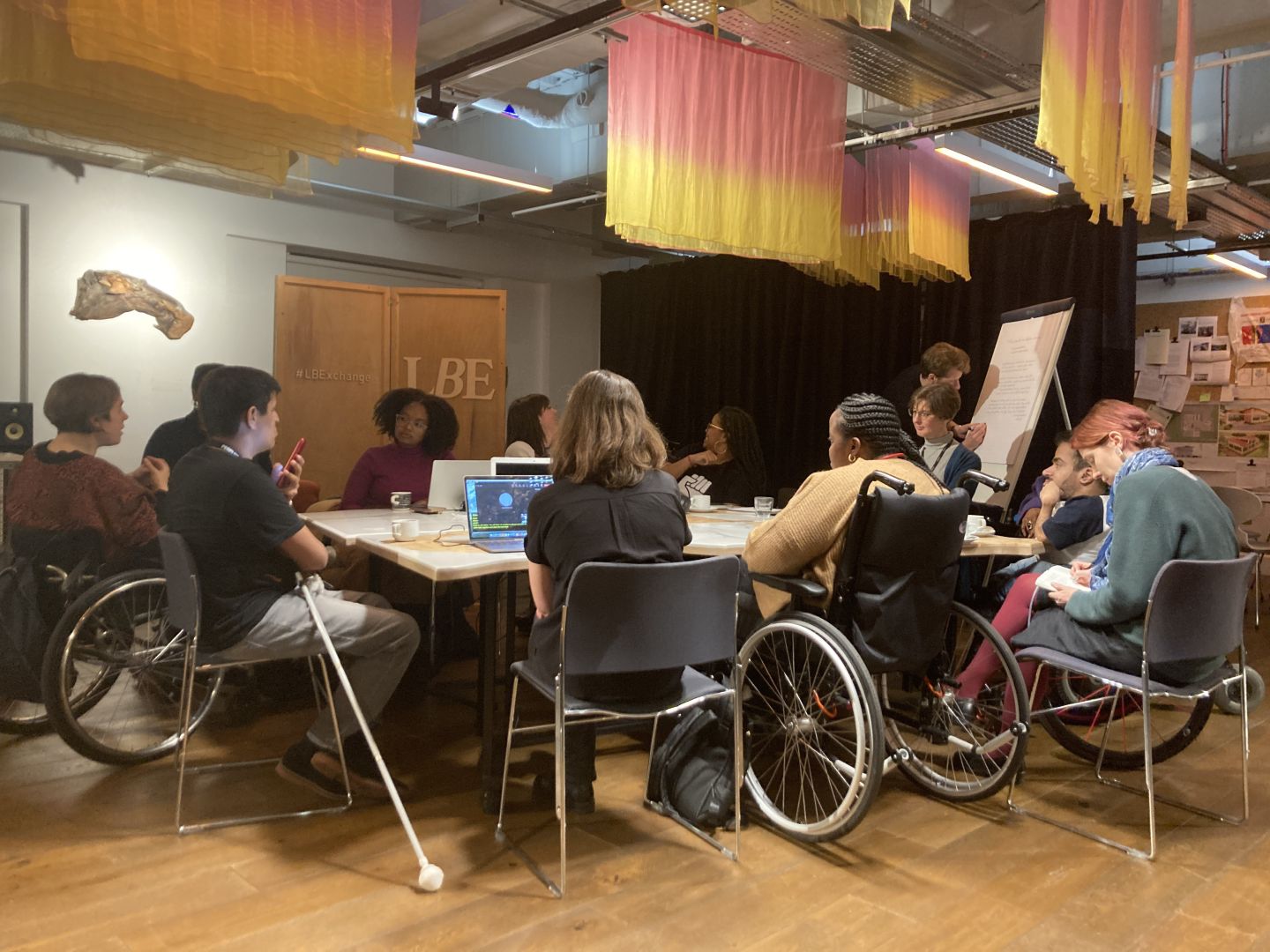
19 December 2022
Unheard voices: disability and minorities and indigenous peoples in research
Recently, Minority Rights Group (MRG) and Land Body Ecologies (LBE) hosted a roundtable discussion on disability and minorities and…
-
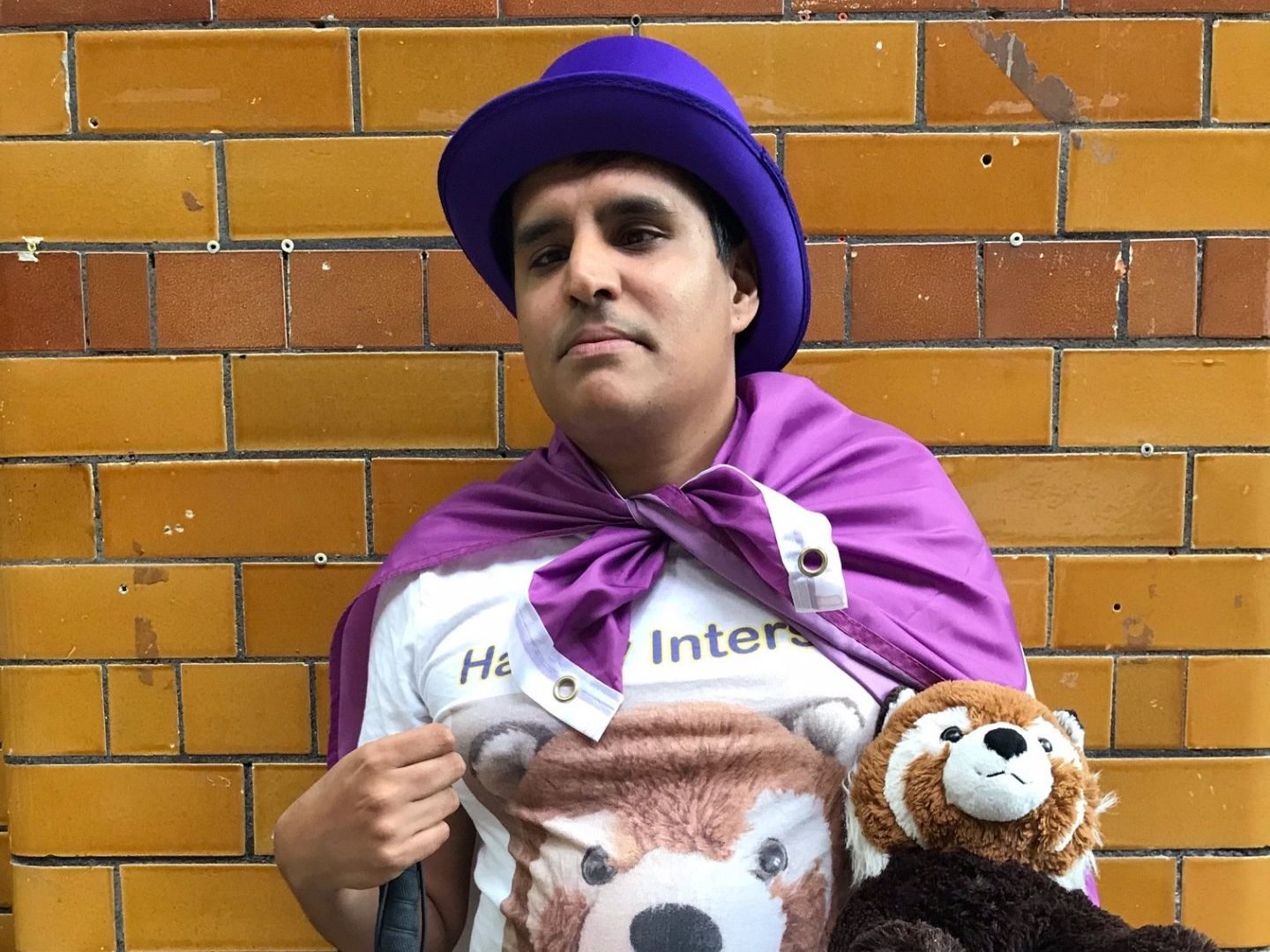
16 December 2022
‘Nothing About Us Without Us’: Community curator Anis Aktar on intersectionality within UK’s Disability Rights Movement History
Anis Aktar is a community curator for the landmark exhibition ‘Nothing About Us Without Us’ at the People’s History Museum in…
-

6 December 2022
Deaf Muslims in the UK: Khalid Ashraf on intersectional discrimination in Britain
Both Deaf people and Muslims experience exclusion and discrimination in British society. Both structurally and in daily life, Deaf Muslims…
Minority stories
-
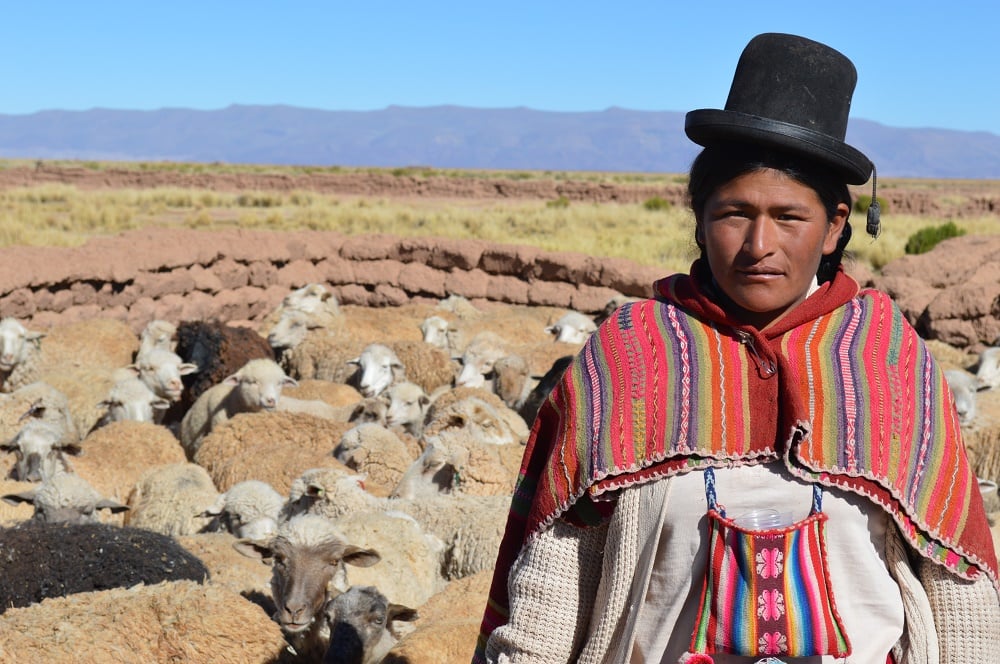
11 July 2016
State of the World’s Minorities and Indigenous Peoples 2016: Focus on culture and heritage
Five organisations from Eastern Europe came together to address the growing concern of online discrimination and hate speech against Europe's biggest minority community, the Roma.
- Central Asia
- Discrimination
- Minority stories
-
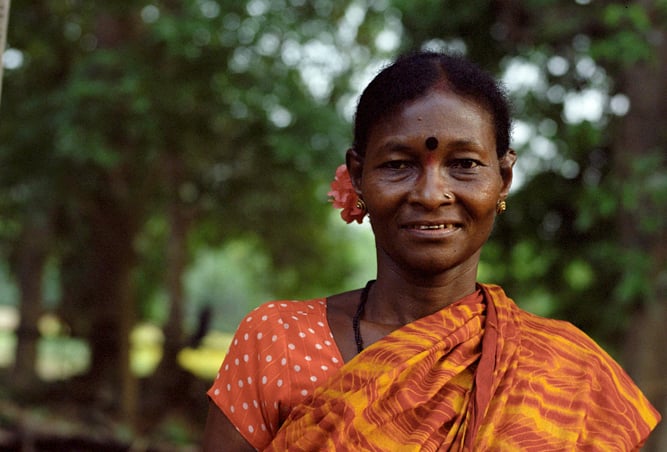
28 October 2015
Afro-Descendants: A Global Picture
Drawing on a range of case studies, this publication seeks to highlight the invisibility and discrimination that persist for people of African descent to this day, as well as celebrate their achievements as activists, artists and citizens.
- Central Africa
- Discrimination
- Minority stories
Reports and briefings
View all-
3 September 2002
Muslims in Britain
The situation of Muslims in Britain is one of the most pressing issues facing British society today. A rise in the number of attacks on…
Partner publications
-
1 July 1992
Bangladesh is my Motherland: A case study of Bengali and English language development and use among a group of Bengali pupils in Britain
This paper is based on a term’s research undertaken for a Diploma in Education (with Special Reference to the Role of Language in…
Programmes
-
- Western Europe
- Right to health
-
- Central and Eastern Europe
- Education
-
- Western Europe
- Racial discrimination
Don’t miss out
- Updates to this country profile
- New publications and resources
Receive updates about this country or territory
-
Our strategy
We work with ethnic, religious and linguistic minorities, and indigenous peoples to secure their rights and promote understanding between communities.
-
-
